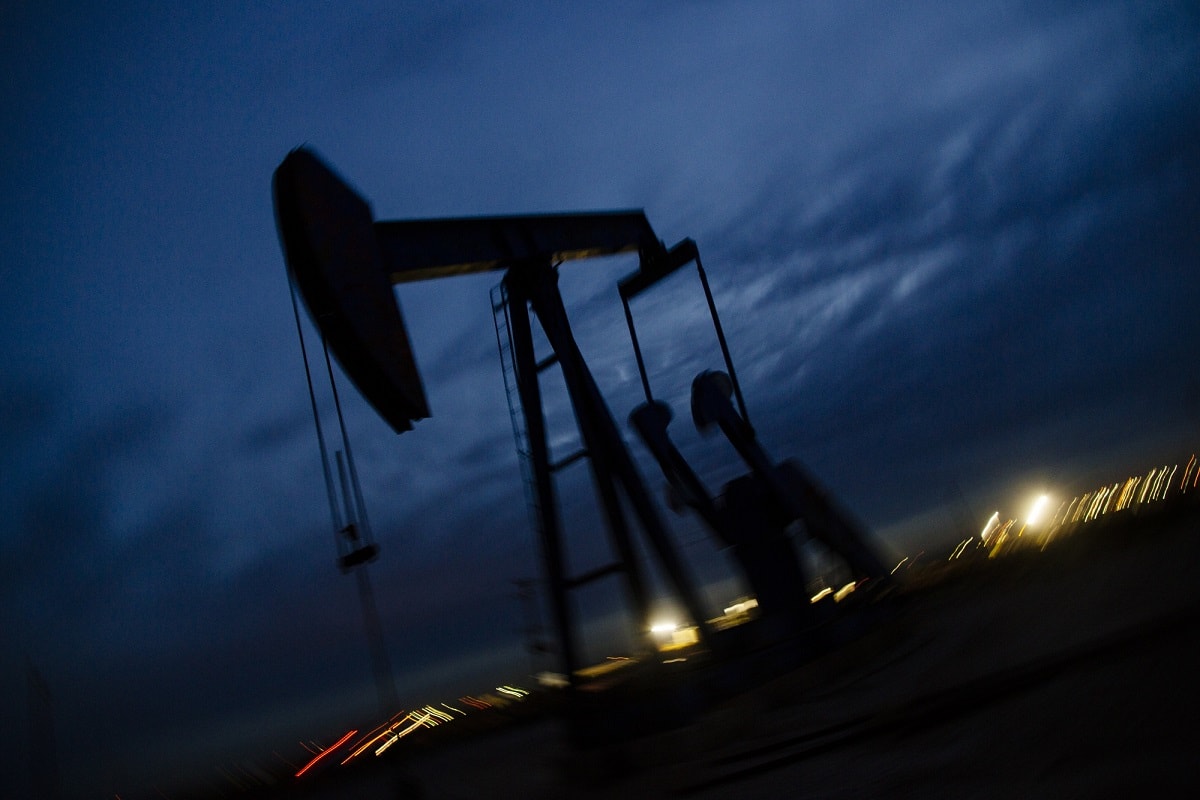Oil & Gas
Oil Steadies While Traders Watch For Middle East Supply Disruptions

(Bloomberg) –Oil rose on Monday but pared most of its earlier gains as investors took stock of the fact that there hasn’t been a supply disruption despite escalating Mideast tensions after the U.S. assassinated Iran’s most powerful general.
Futures briefly topped $70 a barrel in London as the U.S. State Department warned of a “heightened risk” of missile attacks near energy facilities in Saudi Arabia. But three days after an American airstrike killed Qassem Soleimani, oil supplies are still flowing from the Persian Gulf. Tankers there rely on the Strait of Hormuz, which Iran has repeatedly threatened to shut down, to reach customers globally.
“Traders are fading the rally because there are currently no barrels off the market at this time,” said Rebecca Babin, senior equity trader at CIBC Private Wealth Management. Until the market sees a disruption, traders will use moves higher to take profits, she added.
Brent crude oil futures are coming off highs seen earlier
In a note to customers Monday, Goldman Sachs Group Inc. echoed similar sentiments. Price risks for Brent are skewed to the downside in the coming weeks without a major supply interruption, the bank said.
That said, the clash is fanning fears that a wider conflict could disrupt supply from the region which accounts for almost a third of the world’s oil.
Prices haven’t hit these levels since an attack on Saudi Arabia’s oil facilities in September — which the U.S. blamed on Iran — briefly halted about 5% of global output. Meanwhile, President Donald Trump reiterated threats of retaliation should Iran “do anything” and vowed heavy sanctions against Iraq if American troops are forced to leave OPEC’s second-biggest producer.
Trump said he’s prepared to strike “in a disproportionate manner” and more than 50 Iranian sites could be hit if Tehran retaliates against the killing of Soleimani. The Middle East nation said it has to “settle a score with the U.S.” and that it would no longer abide by limits on its enrichment of uranium. A vote by Iraq’s parliament to expel U.S. troops from the country deepened the strain in the region.
Brent futures for March delivery settled up 31 cents at $68.91 a barrel, after surging 3% on ICE Futures Europe. West Texas Intermediate for February rose 22 cents to settle at $63.27 a barrel on the New York Mercantile Exchange. Brent’s premium over WTI for the same month was at $5.87 a barrel.
The political tension is buffeting a market that had already been tightening, in large part because of production cuts by OPEC and its allies. The premium for immediate Brent futures compared with those seven months ahead more than doubled in the fourth quarter.
The U.S. warned of a risk of attacks in Saudi Arabia, particularly in the eastern province and near the Yemeni border close to military bases as well as oil and gas facilities. Trump is also sending more troops to the Middle East.
Saudi Arabia, Iran and Iraq together pumped more than 16 million barrels of oil a day last month.
Rising tensions between the U.S and Iran have already caused considerable turbulence in oil markets, but so far it’s been short-lived. Last year, Washington blamed Tehran for sabotage attacks on supertankers and a missile and drone attack on Saudi Arabia’s Abqaiq crude-processing plant in September — the largest single supply halt in the industry’s history. Iran denied involvement.
Other U.S.-Iran crisis and oil industry developments:
- Iran Says Not Bound by Nukes Deal in New Soleimani Fallout
- Trump Vows Sanctions on Ally Iraq, Toughens Rhetoric on Iran
- Soleimani Killing Leaves Trump’s Middle East Strategy in Tatters
- Occidental Petroleum Expands 2020 Oil Hedges to 350k B/D
- Mexico Hedges 2020 Crude Oil Exports at Average $49 Per Barrel
- There are also other signs in the oil market that people were preparing for further disruption.
Volatility has risen to the highest level in a month and the cost of derivatives that insure against price spikes increased. Four million barrels of options contracts that would profit from a jump in Brent crude to $95 a barrel traded for both March and September. The cost of insuring tankers could rise again, after it surged in the wake of the Abqaiq attack in September.
“The oil market always assumes the worst, so a lot of the general risk is already priced in,” said Jaafar Altaie, managing director of Abu Dhabi-based consultant Manaar Group. “Prices at $70 a barrel already assume the worst-case scenario and we see them holding there.”
–With assistance from Alex Longley, Dan Murtaugh, Serene Cheong and Ben Sharples.
-

 Banking & Finance2 months ago
Banking & Finance2 months agoOman Oil Marketing Company Concludes Its Annual Health, Safety, Environment, and Quality Week, Reaffirming People and Safety as a Top Priority
-

 News2 months ago
News2 months agoJamal Ahmed Al Harthy Honoured as ‘Pioneer in Youth Empowerment through Education and Sport’ at CSR Summit & Awards 2025
-

 OER Magazines2 months ago
OER Magazines2 months agoOER, December 2025
-

 News2 months ago
News2 months agoAI Security Conference 2025 Hosted by Securado Highlights the Changing Cybersecurity Landscape
-

 Insurance1 month ago
Insurance1 month agoSupporting Community Wellness: Liva Insurance Sponsors Muscat Marathon 2026 with Free Health Checkups
-

 Interviews1 month ago
Interviews1 month agoEXCLUSIVE INTERVIEW: TLS Rebranding Marks Strategic Leap Toward Innovation, Sustainability & Growth
-

 Insurance4 weeks ago
Insurance4 weeks agoLiva Insurance Supports Community Wellness Through “Experience Oman – Muscat Marathon 2026”
-

 Investment2 weeks ago
Investment2 weeks agoLalan Inaugurates Its First Overseas Manufacturing Facility, Marking Sri Lanka’s First Investment in SOHAR Freezone





























